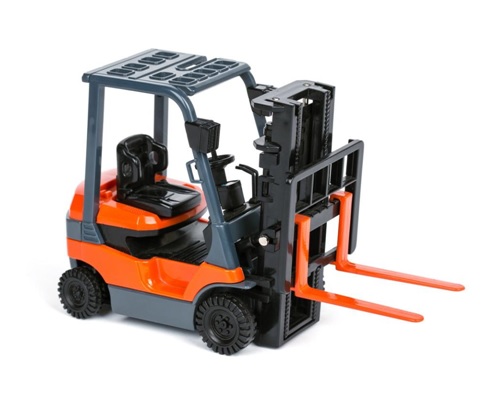Types of Forklift Licenses
Forklift licenses are an important prerequisite to operating a forklift in any workplace. Different types of forklifts require different types of licenses and it is essential that operators are aware of the correct license for their particular model. In this article, we will discuss the various types of forklift licenses and how to obtain them.
The most common type of license is the counterbalanced forklift or ‘reach truck’ license. This type of forklift licence in Victoria covers all counterbalanced models such as 3-wheelers and 4-wheelers, as well as articulated reach trucks that have the capacity to lift up to 5 tonnes. To gain this type of license, applicants must take part in a training program which includes both theoretical and practical elements, before being assessed by an instructor who will then issue the certificate upon completion.


Another popular type of forklift license is the telescopic handler or telehandler operator certificate. This covers machines with outreach capabilities such as rough terrain telehandlers which can be used for lifting heavy loads in difficult areas where regular forklifts cannot access safely. The training program required for this type of certificate typically involves more complex manoeuvres than those needed for achieving a basic counter-balance certification due to its unique design features and capabilities.
Requirements for Obtaining a Forklift License
If you are looking to operate a forklift, it is important to understand the requirements for obtaining a license. A forklift license is required by law in order to legally operate the machinery and it can be obtained through certified training courses. To help you determine if a forklift license is right for you, here are some of the most important requirements that need to be met in order to obtain one.
1. You must be at least 18 years old. The minimum age requirement for operating a forklift is 18 years old due to safety regulations and industry standards. It’s important that anyone who operates these machines has the maturity and experience necessary for safe operation.
2. You must have adequate training or certification from an accredited program or institution. Operating a large piece of machinery like a forklift requires knowledge of how it works as well as safety protocols that should be followed at all times when operating the machine. This knowledge can come from either taking an approved course or receiving on-the-job training from someone with experience in this field who can provide guidance and instruction on the proper use of the equipment and safety guidelines that should always be followed when operating it.
3. You must pass an exam administered by an accredited testing centre or school before being issued.
Benefits of Having a Forklift License
If you are considering a career in the material handling industry, it is important to consider obtaining a forklift license. A forklift license will not only provide you with career opportunities and job security, but it can also offer several other benefits that can help increase your professionalism and overall earning potential.
First, having a forklift license shows that you have the necessary experience and training to safely operate a variety of powered industrial trucks. This knowledge is essential to employers who need workers who understand the safety regulations required when operating these machines in order to protect both personnel and equipment from injury or damage. Forklift operators must be well-versed in different types of truck models as well as their capacities so they know how best to move heavy loads without causing harm or damage. Employers also take comfort in knowing that their employees are properly trained and certified on how to use these powerful machines which helps them avoid costly liabilities due to accidents or breakdowns on job sites.
In addition, having a forklift certification gives workers an edge when applying for jobs since many employers prefer candidates who are licensed operators over those without any formal training/qualification. A valid certification indicates dedication & commitment towards professional development which goes a long way towards getting hired for better positions with higher salaries down the road.
Training and Certification Programs for Obtaining a Forklift License
Forklift operators are essential for many businesses in the material handling industry. It is important for these workers to be properly trained and certified in order to ensure safety and efficiency on the job. Obtaining a forklift license requires completing a training and certification program, which can vary based on the type of forklift being operated.
The most common type of forklift used in the material handling industry is an electric or gas-powered counterbalance forklift. For this type of machine, operators must complete a comprehensive training program that covers all aspects of its safe operation, including knowledge of manoeuvring and loading techniques, proper maintenance procedures, hazard identification and avoidance, as well as any relevant laws or regulations specific to their work environment. Upon completion of this training course (usually 10-20 hours), operators must then pass an examination in order to receive their license from the Occupational Safety & Health Administration (OSHA).
In addition to electric/gas-powered counterbalance machines, there are also specialized types such as reach trucks and cherry pickers that require additional certification programs. Reach truck operators need additional safety awareness training due to their increased height requirements whereas cherry picker operators must understand how these machines operate when suspended at heights over 30 feet above ground level.


Conclusion
In conclusion, obtaining a forklift licence is an important step towards becoming a professional forklift operator. It is important to research the different types of licences available and select the one that best suits your needs. With a valid licence, you can be sure of meeting all local regulations and will be able to operate safely and efficiently in any warehouse or workplace environment.
















